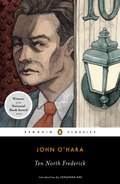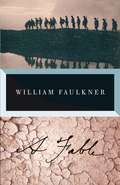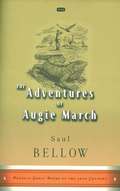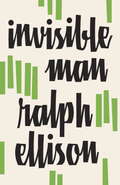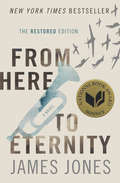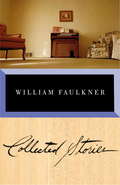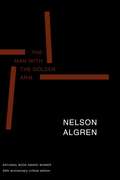Special Collections
National Book Award Winners - Fiction
- Table View
- List View
Ten North Frederick
by Jonathan Dee and John O'HaraThe National Book Award-winning novel by the writer whom Fran Lebowitz called "the real F. Scott Fitzgerald"Joe Chapin led a storybook life.
A successful small-town lawyer with a beautiful wife, two over-achieving children, and aspirations to be president, he seemed to have it all. But as his daughter looks back on his life, a different man emerges: one in conflict with his ambitious and shrewish wife, terrified that the misdeeds of his children will dash his political dreams, and in love with a model half his age. With black wit and penetrating insight, Ten North Frederick stands with Richard Yates' Revolutionary Road, Evan S. Connell's Mr. Bridge and Mrs. Bridge, the stories of John Cheever, and Mad Men as a brilliant portrait of the personal and political hypocrisy of mid-century America.
A Fable
by William FaulknerAn allegorical story of World War I, set in the trenches in France and dealing ostensibly with a mutiny in a French regiment, it was originally considered a sharp departure for Faulkner. Recently it has come to be recognized as one of his major works and an essential part of the Faulkner oeuvre.
This novel won both the Pulitzer Prize and the National Book Award in 1955.
The Adventures of Augie March
by Saul BellowOriginally published in 1953, Saul Bellow's modern picaresque tale grandly illustrates twentieth-century man's restless pursuit of an elusive meaning.
Augie March, a young man growing up in Chicago during the Great Depression, doesn't understand success on other people's terms.
Fleeing to Mexico in search of something to fill his restless soul and soothe his hunger for adventure, Augie latches on to a wild succession of occupations until his journey brings him full circle.
Yet beneath Augie's carefree nature lies a reflective person with a strong sense of responsibility to both himself and others, who in the end achieves a success of his own making.
A modern-day Columbus, Augie March is a man searching not for land but for self and soul and, ultimately, for his place in the world.
Winner of the National Book Award
[This text is listed as an example that meets Common Core Standards in English language arts in grades 11-12 at http://www.corestandards.org.]
Invisible Man
by Ralph EllisonInvisible Man is a milestone in American literature, a book that has continued to engage readers since its appearance in 1952.
The nameless narrator of the novel describes growing up in a black community in the South, attending a Negro college from which he is expelled, moving to New York and becoming the chief spokesman of the Harlem branch of "the Brotherhood", and retreating amid violence and confusion to the basement lair of the Invisible Man he imagines himself to be.
The book is a passionate and witty tour de force of style, strongly influenced by T.S. Eliot's The Waste Land, Joyce, and Dostoevsky.
Winner of the National Book Award
From Here to Eternity
by James JonesJames Jones’s epic story of army life in the calm before Pearl Harbor—now with previously censored scenes and dialogue restored
At the Pearl Harbor army base in 1941, Robert E. Lee Prewitt is Uncle Sam’s finest bugler. A career soldier with no patience for army politics, Prewitt becomes incensed when a commander’s favorite wins the title of First Bugler. His indignation results in a transfer to an infantry unit whose commander is less interested in preparing for war than he is in boxing. But when Prewitt refuses to join the company team, the commander and his sergeant decide to make the bugler’s life hell.
An American classic now available with scenes and dialogue considered unfit for publication in the 1950s, From Here to Eternity is a stirring picture of army life in the months leading up to the attack on Pearl Harbor.
This ebook features an illustrated biography of James Jones including rare photos from the author’s estate.
Winner of the National Book Award
Collected Stories
by William Faulkner"I'm a failed poet. Maybe every novelist wants to write poetry first, finds he can't and then tries the short story which is the most demanding form after poetry. And failing that, only then does he take up novel writing." --William Faulkner
Forty-two stories make up this magisterial collection by the writer who stands at the pinnacle of modern American fiction. Compressing an epic expanse of vision into hard and wounding narratives, Faulkner's stories evoke the intimate textures of place, the deep strata of history and legend, and all the fear, brutality, and tenderness of the human condition. These tales are set not only in Yoknapatawpha County, but in Beverly Hills and in France during World War I. They are populated by such characters as the Faulknerian archetypes Flem Snopes and Quentin Compson, as well as by ordinary men and women who emerge so sharply and indelibly in these pages that they dwarf the protagonists of most novels.
Winner of the National Book Award
The Man with the Golden Arm (50th Anniversary Edition)
by Nelson AlgrenThe Man with the Golden Arm is Nelson Algren's most powerful and enduring work. On the 50th anniversary of its publication in November 1949, for which Algren was honored with the first National Book Award (which he received from none other than Eleanor Roosevelt at a ceremony in March 1950), Seven Stories is proud to release the first critical edition of an Algren work.
A novel of rare genius, The Man with the Golden Arm describes the dissolution of a card-dealing WWII veteran named Frankie Machine, caught in the act of slowly cutting his own heart into wafer-thin slices. For Frankie, a murder committed may be the least of his problems. A literary tour de force, here is a novel unlike any other, one in which drug addiction, poverty, and human failure somehow suggest a defense of human dignity and a reason for hope.
Special contributions by Russell Banks, Bettina Drew, James R. Giles, Carlo Rotella, William Savage, Lee Stringer, Studs Terkel, Kurt Vonnegut, and others.
Winner of the first National Book Award
